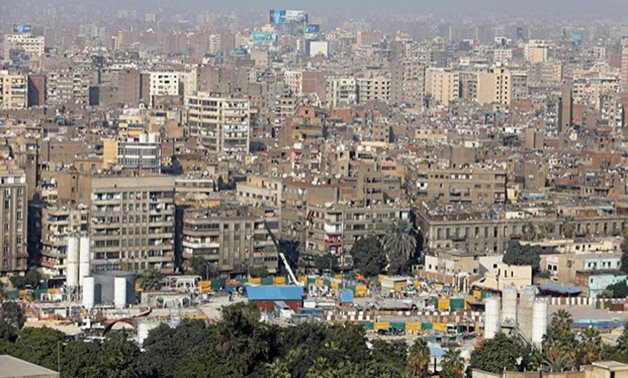
A general view of clustered buildings in Cairo, Egypt, January 28, 2018. REUTERS/Mohamed Abd El Ghany
CAIRO – 1 January 2025: The year 2024 witnessed unprecedented development in Rafah New City in North Sinai, Egypt, with the completion of the first phase of residential unit distribution. This achievement marks a significant milestone in North Sinai's development, driven by the Egyptian leadership's vision for the region.
The first phase involved the delivery of 411 residential units to beneficiaries among the residents of Rafah. These units, comprising 656 units across 41 buildings, offer 120 square meters of living space each, distributed across ground and upper floors. A careful allocation plan ensured social equity, with 10% of units reserved for the families of martyrs and injured individuals from Rafah, 5% for residents with disabilities, and another 5% for the governorate and government agencies. Notably, 80% of the units were allocated to the general population of Rafah City and its workers.
The North Sinai Governorate announced the names of the beneficiaries, totaling 411 individuals, following the due process outlined by the National Authority for the Development of the Sinai Peninsula. This initiative reflects the government's commitment to providing decent housing for the people of Sinai and aligns with the government's plan for developing border regions and fostering sustainable settlement in Sinai.
These units represent a crucial step towards the completion of Rafah New City, which encompasses 272 residential buildings in its first phase. This ambitious project aims to create a comprehensive city that offers a suitable living environment for residents while contributing to the region's economic and social development.
Rafah New City is a major project designed to enhance the quality of life in the Sinai Peninsula, particularly in border areas. The project encompasses residential areas, as well as essential services and commercial facilities, to meet the needs of local residents, create job opportunities, and foster social stability in the region.
The new city boasts a range of amenities, including two mosques, two primary schools, a kindergarten, shops, a post office, a police station, and essential infrastructure such as water and sanitation. The city also features a water pumping station, a sewage treatment plant, and a modern road network, reflecting the significant efforts made to improve living standards and provide essential services.
Construction continues on the second and third phases of Rafah New City, which will include 578 additional residential buildings and government service buildings. These phases will also incorporate schools for children with special needs (hearing, visual, and intellectual impairments), primary and preparatory schools, and secondary schools with various specializations.
Furthermore, the city will include vital recreational areas such as a sports club and central parks, as well as a comprehensive commercial market and parking spaces. The city will also feature a gas station and an industrial zone, enhancing its ability to meet the daily needs of residents and fostering a conducive environment for sustainable economic development.
Located on the eastern border of the Arab Republic of Egypt, Rafah New City holds strategic significance as the eastern gateway to Egypt. Its name derives from the ancient Egyptian city of "Rafa," which served as Egypt's eastern stronghold. The city of Rafah, encompassing 11 villages, covers an area of approximately 633 square kilometers.
Under the guidance of the political leadership, Rafah has witnessed remarkable development. On March 1, 2018, the directive to establish Rafah New City was issued. Prior to this, on July 15, 2015, the government approved the re-allocation of 535.61 acres of land to the North Sinai Governorate for the construction of this model city.
The Governor of North Sinai previously announced a 55% reduction in the cost of housing units in Rafah New City, following the approval of President Abdel Fattah El-Sisi. This decision reflects the government's commitment to supporting the people of Sinai and alleviating the financial burden on the region's residents.
Comments
Leave a Comment